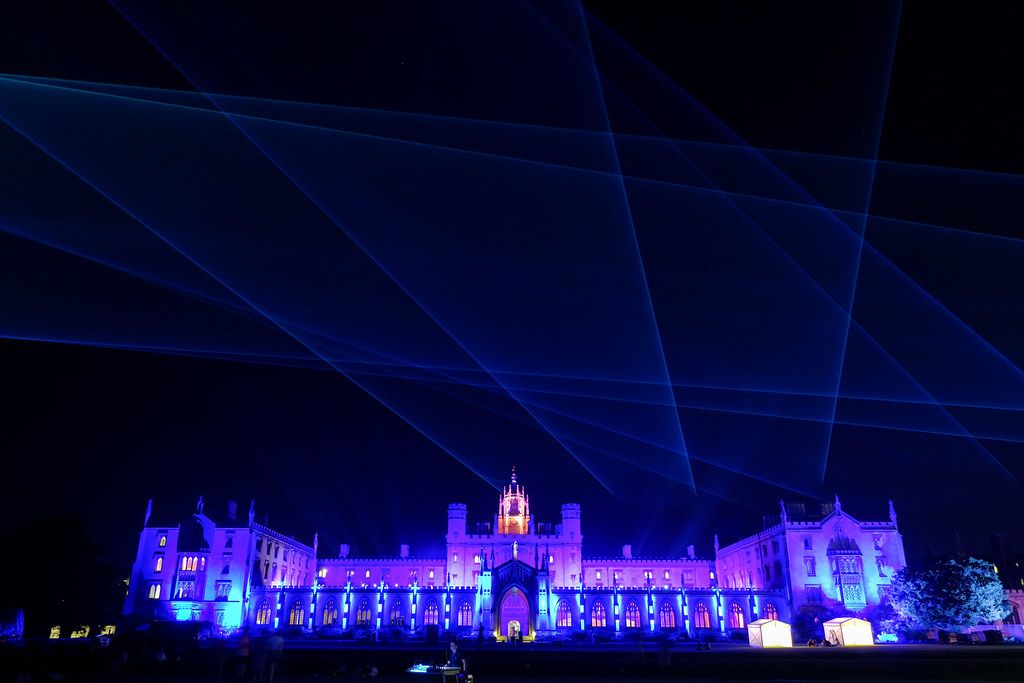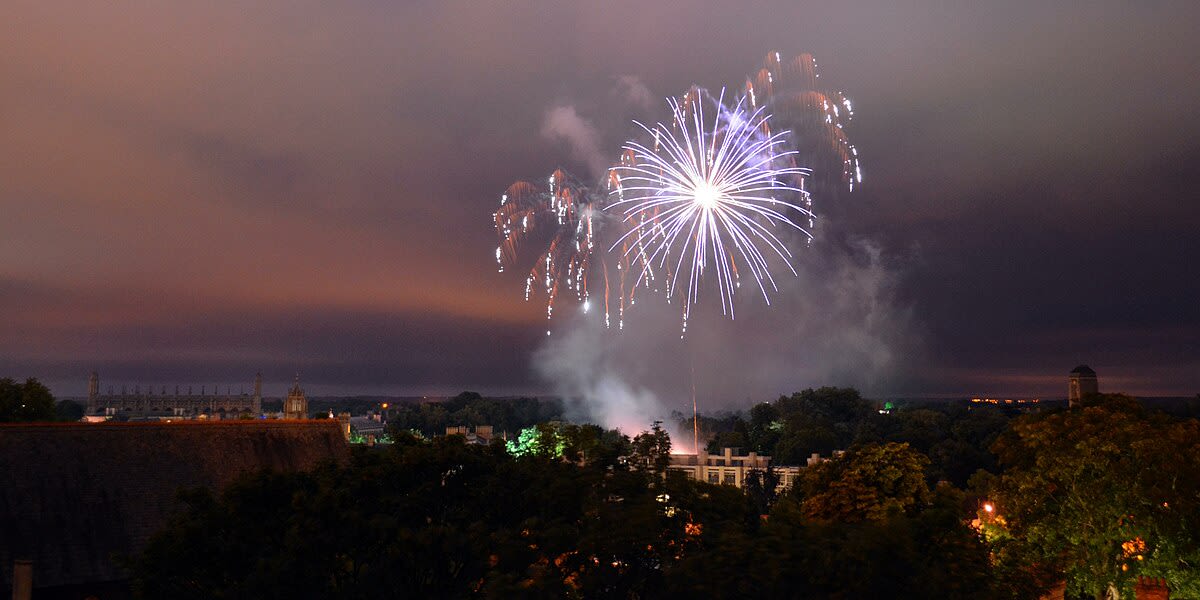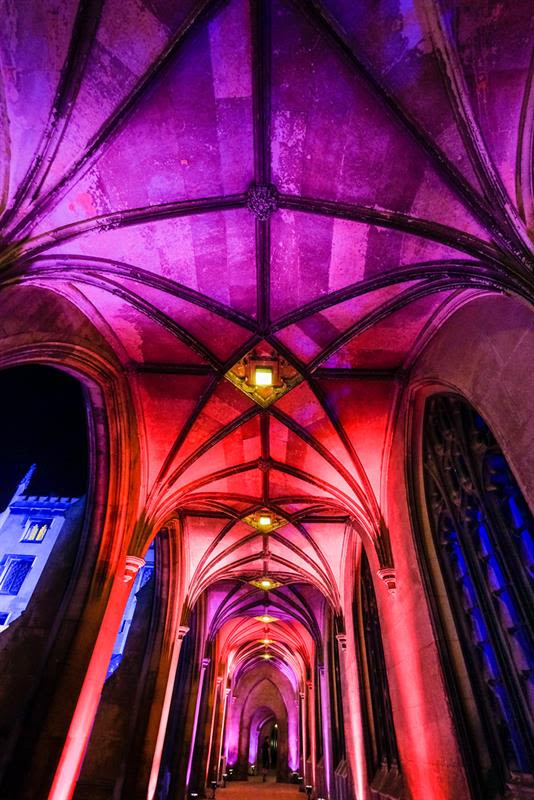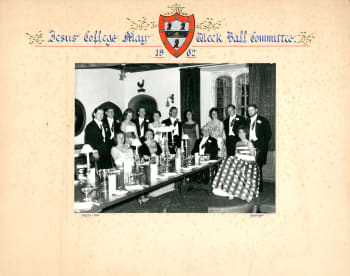The Evolution of May Week
How a long-standing tradition has changed with the times

Sidney Sussex’s first May Ball in 1894
Sidney Sussex’s first May Ball in 1894
May Week is an iconic part of life at Cambridge. It is often an extravagant and rowdy time due to alcohol and jubilant celebrations. However, as times change, students have adapted May Balls to reflect student ethos and attitudes of the time.
May Week, as the name implies, originally took place in May during the week before exams. However, this changed in 1882, when students probably realised that it would be more fun to celebrate after exams.
With similarities to today, May Balls were black tie events, including live music, champagne and food options. They provided an end-of-year celebration for students, uniting the College community.
Evolving alongside popular culture, decades of change have shaped these events. In the 1960s, the impact of the “swinging sixties” influenced the music, guests’ outfits, and the style of dance.

Students have creatively overcome local resistance to May Balls. Defying efforts from the constabulary to prevent King’s College’s notoriously rowdy May Ball from taking place in the 1970s, students renamed the celebration the 'June Event'.
Innovation continued in the 1980s. In 1985, the Jesus College May Ball featured a hot air balloon flying in the College and an artist to draw guests’ portraits. The event even included magic tricks by Paul Daniels.
Council notice c. 1972 about King’s College June Event
Council notice c. 1972 about King’s College June Event
Hot air balloon at Jesus College May Ball 1985
Hot air balloon at Jesus College May Ball 1985
May Week in recent years

More recently, May Balls are increasingly opulent and expensive affairs. A particularly memorable example was the Sidney Sussex May Ball of 2010. The Committee transformed the front court into a mini-River Cam, escorting guests on punts.
News outlets commonly depict May Balls as indulgent and chaotic. Certainly, Trinity College, and others, promote their fireworks, expensive tickets, and black-tie dress code.
However, these events require great planning by students committees, who invest time and energy throughout the academic year to design incredible celebrations for May Week.
Sidney Sussex May Ball 2010
Sidney Sussex May Ball 2010
Adapting to changing attitudes

May Week Alternative 2021 (Credit: Varsity, Alfie Eltis)
May Week Alternative 2021 (Credit: Varsity, Alfie Eltis)
In an effort to positively impact society, students have sought to make May Week celebrations more charitable. In 2019, George Rosenfeld founded the May Week Alternative (MWA), which donates the cost of a May Ball ticket, a recommended £150 donation, to the Against Malaria Foundation. Partner organisations double each donation, increasing the event's impact. Rather than emphasising luxury, the celebration focuses on giving back to society.
More affordable versions of May Balls, including June Events and Garden Parties, emphasise accessibility over indulgence. At King’s College, the King’s Affair is “the antidote to the monotony of traditional balls”. Guests wear fancy dress costumes, and tickets are cheaper than traditional May Balls. Colleges, including Newnham and Robinson, organise Garden Parties, which are smaller in size, whilst still offering entertainment, food and drinks.
A year that required particularly important adaptations was 2020. Due to COVID-19, May Balls, like all events across the world, were cancelled. To respond to this, May Ball Committee members, alongside May Week Alternative and Cambridge Raising and Giving, devised the May Week Mega Event.
The Committee streamed the online event to students, featuring famous Cambridge alumni such as Dame Emma Thompson. The Mega-Event president, George Rosenfeld, saw this celebration as an opportunity for people to come together and reconnect with the University after exams and lockdown.
More recently, students have responded to concerns about the environmental impact of May Balls. In 2023, Darwin College hosted the most sustainable ball in Cambridge. The event offered plant-based food and refreshments, whilst also enforcing recycling systems and energy-usage policies.
Zoom meeting with the May Week Mega Event Committee
Zoom meeting with the May Week Mega Event Committee
May Week Mega Event poster
May Week Mega Event poster
Perhaps the longevity of this infamous May Week tradition is due to its ability to adapt to changing circumstances. From the beginning, students have reflected popular culture and evolving views in their May Week celebrations. Whether this is rebellion, giving back to society, or addressing environmental concerns, May Balls provide a cause for students to rally around. As Cambridge and the world around it have changed, students prioritise attitudes of the time and creative ideas. Even a global pandemic could not stop a May Week celebration from taking place.
With the development of AI and new technology, who knows where the future of May Balls will take us?
What was your May Ball experience like? Share a photo and tag us on Facebook or X.









